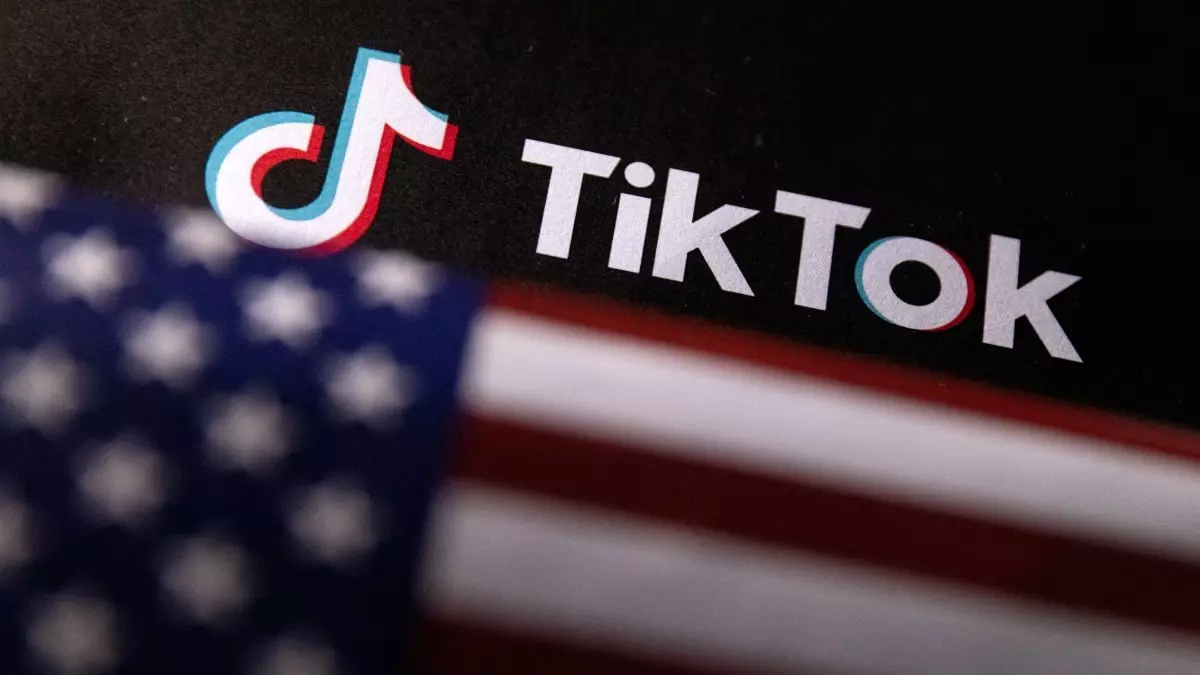In the complex landscape of digital communication, few issues have captivated public and governmental attention as much as the debate over TikTok’s presence in the United States. Recently, the app, which has become an integral part of the social media framework in America, re-emerged in the app stores of Apple and Google, thanks to a significant intervention from then-President Donald Trump. The prolonged uncertainty surrounding TikTok raises questions about national security, corporate governance, and market valuation—all of which are pivotal in the evolving narrative of global digital rights.
The Chinese-owned TikTok, known for its short-form videos, had been facing mounting pressure from U.S. lawmakers who cited national security as a paramount concern. As fears surfaced that the Chinese government could exploit the platform for espionage, the U.S. enacted legislation compelling its owner, ByteDance, to divest its American assets. When former President Trump initiated the crackdown, it appeared that TikTok’s American operations could come to an abrupt end unless a suitable buyer emerged. A pivotal law enacted in 2023 exemplified these fears, granting the U.S. government explicit authority to force the sale of foreign-owned digital applications that might compromise national security.
For a brief period, TikTok faced removal from app stores; however, under Trump’s directive, which effectively delayed the ban, the application once again became accessible for download. The executive order, signed by Trump, stated a 75-day postponement, allowing ByteDance’s American operations to live on—at least for the time being. This action not only revived the app’s presence in the digital marketplace but also pointed to a burgeoning dialogue between tech giants and government authorities on how to manage the intricate web of app compliance and legal accountability.
Following Trump’s reassurances, Google and Apple remained cautious, initially withholding TikTok from their platforms. According to market analysts, this hesitation could be attributed to the need for clarity regarding their exemption from legal repercussions associated with hosting the app. It is crucial to recognize that companies operating within the realms of digital marketplaces must navigate a plethora of laws and regulations, particularly when national security is involved. The dialogue surrounding TikTok also raises broader concerns about digital marketplace governance and the responsibilities of platforms hosting foreign applications.
Furthermore, data from market intelligence firm Sensor Tower shed light on TikTok’s vast success in the U.S. market, with over 52 million downloads recorded in 2024 alone. Interestingly, 52% of these downloads were from consumers using the Apple App Store, indicating a significant reliance on Apple’s platform for TikTok’s U.S. audience. This data not only reflects users’ affinity for the platform but also underscores the intricate balance tech companies must maintain between user demand and regulatory compliance.
As discussions about a potential sale of TikTok’s U.S. assets circulate, the saga continues to attract attention from various stakeholders, including investors and business magnates like former Los Angeles Dodgers owner Frank McCourt. With analysts estimating the company’s market value as high as $50 billion, the allure of TikTok becomes clearer. Such financial prospects can influence buyer motivation and may determine TikTok’s long-term operational framework in the United States.
Trump’s disclosure regarding ongoing discussions about potential buyers signals a shift in focus from regulatory scrutiny to market action. The government’s expresses desire to find a viable long-term solution could pave the way for new ownership models or operational restructuring that aligns with national security interests. However, the likelihood of success hinges on both governmental collaboration and the ability of potential buyers to fulfill the necessary compliance criteria.
As TikTok strives to maintain its foothold in the American social media landscape, the crossroads of national security and digital innovation become increasingly salient. The interplay of government intervention and corporate strategy may shape not only TikTok’s fate but also set precedents for how foreign-owned apps are treated in the U.S. Firm regulatory frameworks will be essential in safeguarding national interests while allowing innovation and user engagement to flourish. The destiny of TikTok serves as a microcosm of broader geopolitical tensions, highlighting the significance of vigilance in the digital realm, where user data, privacy concerns, and corporate interests intersect.


Leave a Reply